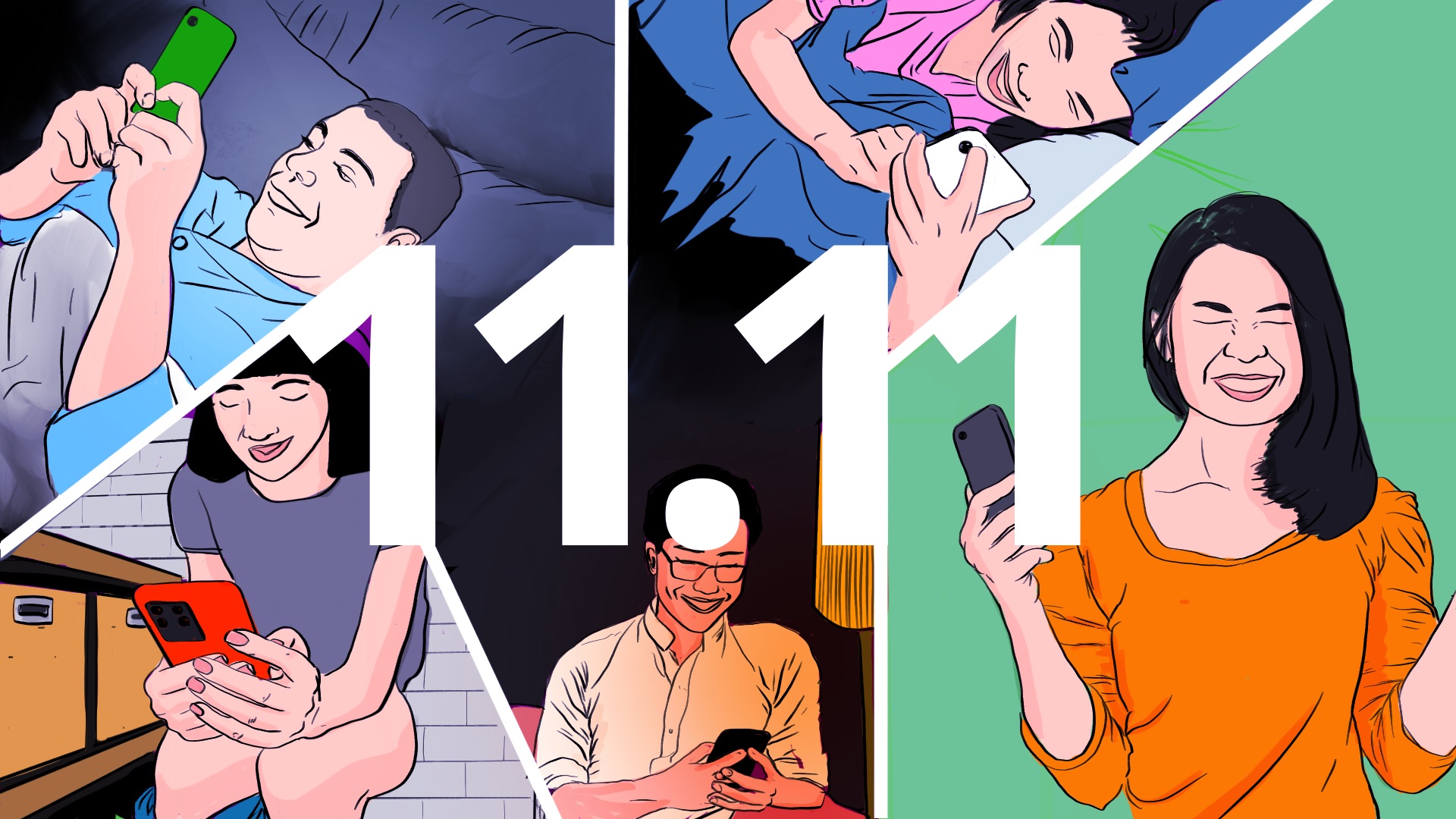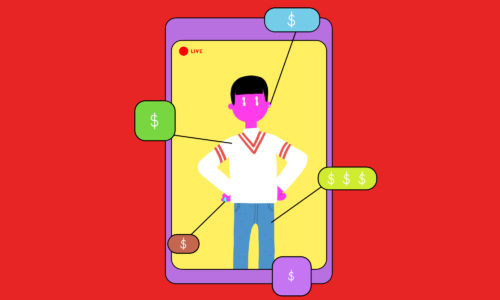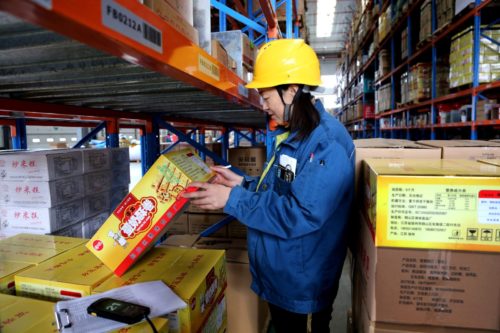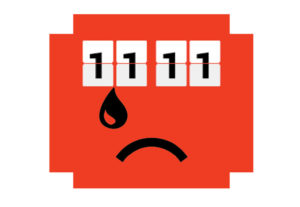Talk like a Chinese shopper on Singles Day
November 11 — a.k.a., Singles Day — is China's annual consumer holiday, when billions of dollars gets spent on everything from everyday items to luxury goods.

This story was first published in The World of Chinese and is reprinted here, with minor edits, with permission.
This year’s Singles Day (光棍节 guānggùn jié), China’s largest consumer holiday, was a slightly toned down version of its usual extravagant self, but still saw sales records broken. Online users have engaged in an online buying frenzy — not just on this day, but for weeks prior.
Presales on ecommerce sites like Taobao and JD started on October 20, with livestreamers taking to the airwaves to offer various discounts and reductions to customers who spend above a certain amount. Among these livestreamers were lipstick-selling guru Lǐ Jiāqí 李佳琦 and Wēi Yà 薇娅 — who is best known for selling a 40 million yuan ($6 million) space rocket on her channel in 2020 — two notorious sales demons (带货魔鬼 dàihuò móguǐ) who attract a huge numbers of viewers. On the night of October 20 alone, Li sold goods worth 10.65 billion RMB ($1.7 billion), while Weiya’s total came to 930 million RMB ($145 million).
Netizens self-mockingly complained on the internet: “Weiya’s sales are buried everywhere, and Li Jiaqi traps customers” (这简直是薇机四伏,琦虎难下 zhè jiǎnzhí shì Wēi-jī sìfú, Qí-hǔ nánxià). Wēi-jī sìfú 薇机四伏 is a homophone of the idiom 危机四伏 (wēijī sìfú), which means “dangers lurk everywhere,” while Qí-hǔ nánxià 琦虎难下 is a homophone of 骑虎难下 (qíhǔ nánxià), literally, “it’s difficult to dismount a tiger,” meaning someone has no way of stopping halfway through a project.
When it comes to 11/11, Chinese shoppers have created a new set of words to guide them through this unofficial holiday.
Shopping addicts greet November with what they call pre-slimming (预瘦 yù shòu), since 瘦 — skinny — and 售 — sell/sales — are pronounced the same way in Chinese (shòu). It pokes fun at the fact that shopaholics who have already blown their budget will probably have to subsist on cheap food, or 吃土 (chītǔ, “eat soil”), for the rest of the month.
Livestreamers have an impressive ability to plant in people’s heads that they absolutely need a certain product, a skill that online users call planting grass (种草 zhòngcǎo). The slang comes from a Chinese saying that refers to the hardiness of wild grass: “Even a prairie fire cannot burn the grass, it grows again when the spring breeze comes” (野火烧不尽,春风吹又生 yěhuǒ shāo bú jìn, chūnfēng chuī yòu shēng).
The opposite of grass-planting, weeding (拔草 bácǎo, pulling grass), refers to eliminating one’s impulse to spend, either by buying the good or actually showing some restraint. Sometimes the desire is smothered simply because of an empty purse: “This pair of boots is a little bit expensive, and I have no money for it. Forget it, I will weed this grass!” (这双靴子有点小贵,我没钱了。算了,拔草 zhè shuāng xuēzi yǒudiǎn xiǎoguì, wǒ méiqián le. Suàn le, bácǎo). Both grass-planting and weeding can be used to refer to other kinds of desires that take root in people’s minds due to the recommendation of others.
Sometimes, netizens find out only after their purchase that they got the wrong item, don’t really need the item, or have been duped into paying a higher price than necessary. Then they must console themselves by calling this unjust money (冤枉钱 yuānwàngqián), or say they’ve paid an IQ tax (智商税 zhìshāngshuì) for their bad judgment.
Lured by various techniques of grass-planting, netizens often lament: “I paid the IQ tax again for a web-celebrity’s product.” Spendthrifts may even say, in self-mockery: “I have never evaded the IQ tax.” Celebrity-endorsed goods and fad items are among the most commonly IQ-taxed purchases, as are health and wellness (养生 yǎngshēn) products and cosmetics purporting to improve one’s physical well-being.
And even though paying the IQ tax can take a toll, big spenders can console themselves on November 11 by proudly declaring: “咱们也都是参加过百亿项目的人” (zánmen yě dōu shì cānjiāguò bǎiyì xiàngmù de rén) — We have all participated in a business project worth tens of billions.





